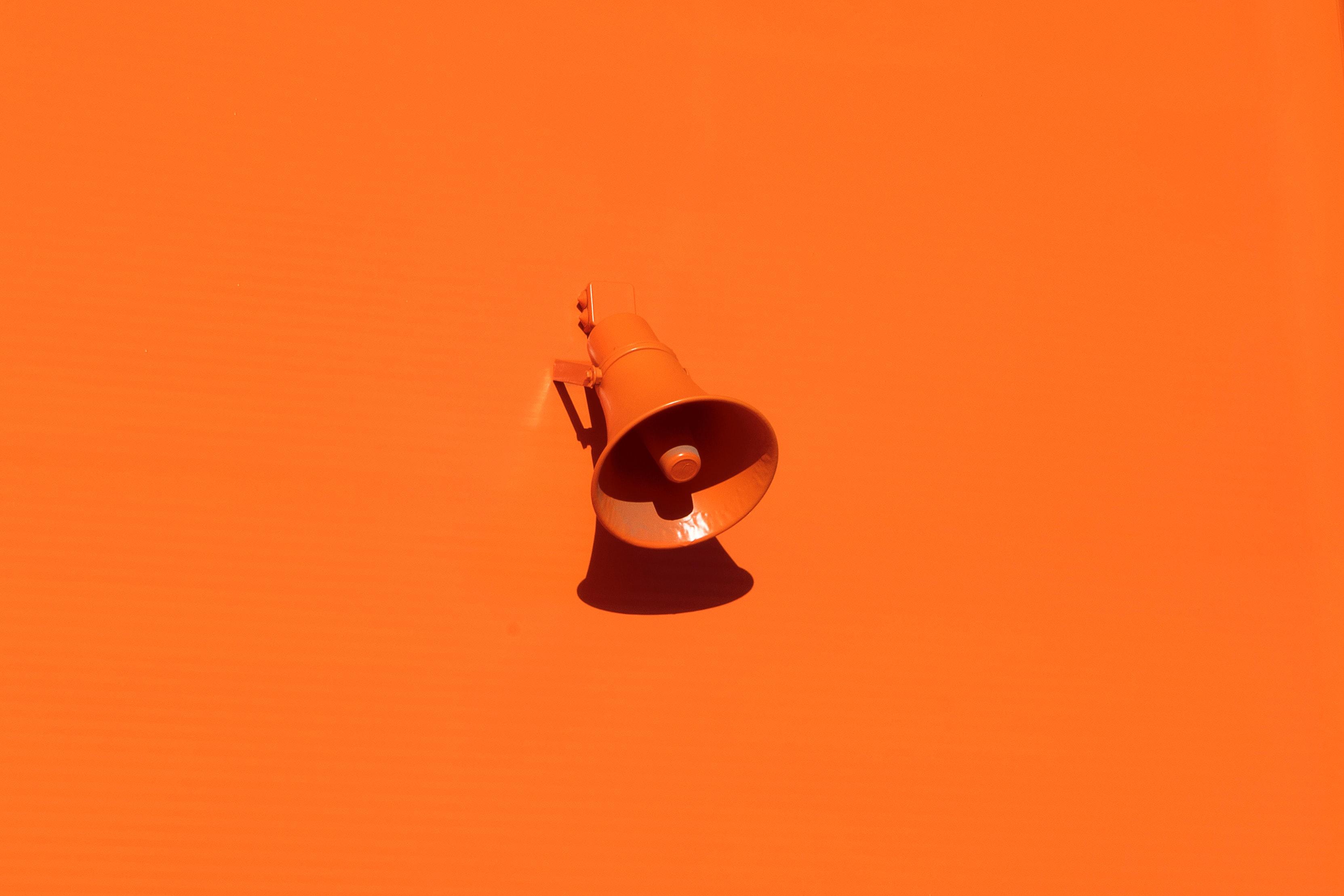Between 2016 and 2018, essayist and humor writer Elissa Bassist saw over 20 medical professionals for a variety of mysterious ailments. Elissa had what millions of American women had: pain that didn't make sense to doctors, a body that didn't make sense to science, and a psyche that didn't make sense to mankind. Then an acupuncturist suggested some of her physical pain could be caged fury finding expression, and that treating her voice would treat the problem. It did.
In her new memoir Hysterical, Elissa shares how growing up, her family, boyfriends, school, work, and television all had the same expectation for a woman's voice: less is more. She was called dramatic and insane for speaking her mind, accused of overreacting and playing the victim for having unexplained physical pain and was ignored or rebuked like women throughout history for using her voice "inappropriately" in expressing sadness or suffering or anger or joy. Because of this, she said "yes" when she meant "no," she didn't tweet #MeToo, and she never spoke without fear of being "too emotional." So, she felt rage, but like a "good woman" she repressed it.
Join Elissa along with novelist and CIIS professor in Interdisciplinary Arts and Writing Carolyn Cooke for an empowering conversation exploring how girls and women internalize and perpetuate directives about their voice, making it hard to emote or "just speak up" and "burn down the patriarchy." Elissa shares her journey of a voice lost and found and discusses new ways to think about a woman's voice-where it's being squashed and where it needs amplification.
Elissa encourages those who feel like their voices have been lost-especially girls and women-to unmute their voice, listen to it above all others, and use it again and again without regret.
Free, suggested donation of $10.
Presented by CIIS Public Programs
show less
In her new memoir Hysterical, Elissa shares how growing up, her family, boyfriends, school, work, and television all had the same expectation for a woman's voice: less is more. She was called dramatic and insane for speaking her mind, accused of overreacting and playing the victim for having unexplained physical pain and was ignored or rebuked like women throughout history for using her voice "inappropriately" in expressing sadness or suffering or anger or joy. Because of this, she said "yes" when she meant "no," she didn't tweet #MeToo, and she never spoke without fear of being "too emotional." So, she felt rage, but like a "good woman" she repressed it.
Join Elissa along with novelist and CIIS professor in Interdisciplinary Arts and Writing Carolyn Cooke for an empowering conversation exploring how girls and women internalize and perpetuate directives about their voice, making it hard to emote or "just speak up" and "burn down the patriarchy." Elissa shares her journey of a voice lost and found and discusses new ways to think about a woman's voice-where it's being squashed and where it needs amplification.
Elissa encourages those who feel like their voices have been lost-especially girls and women-to unmute their voice, listen to it above all others, and use it again and again without regret.
Free, suggested donation of $10.
Presented by CIIS Public Programs
Between 2016 and 2018, essayist and humor writer Elissa Bassist saw over 20 medical professionals for a variety of mysterious ailments. Elissa had what millions of American women had: pain that didn't make sense to doctors, a body that didn't make sense to science, and a psyche that didn't make sense to mankind. Then an acupuncturist suggested some of her physical pain could be caged fury finding expression, and that treating her voice would treat the problem. It did.
In her new memoir Hysterical, Elissa shares how growing up, her family, boyfriends, school, work, and television all had the same expectation for a woman's voice: less is more. She was called dramatic and insane for speaking her mind, accused of overreacting and playing the victim for having unexplained physical pain and was ignored or rebuked like women throughout history for using her voice "inappropriately" in expressing sadness or suffering or anger or joy. Because of this, she said "yes" when she meant "no," she didn't tweet #MeToo, and she never spoke without fear of being "too emotional." So, she felt rage, but like a "good woman" she repressed it.
Join Elissa along with novelist and CIIS professor in Interdisciplinary Arts and Writing Carolyn Cooke for an empowering conversation exploring how girls and women internalize and perpetuate directives about their voice, making it hard to emote or "just speak up" and "burn down the patriarchy." Elissa shares her journey of a voice lost and found and discusses new ways to think about a woman's voice-where it's being squashed and where it needs amplification.
Elissa encourages those who feel like their voices have been lost-especially girls and women-to unmute their voice, listen to it above all others, and use it again and again without regret.
Free, suggested donation of $10.
Presented by CIIS Public Programs
read more
In her new memoir Hysterical, Elissa shares how growing up, her family, boyfriends, school, work, and television all had the same expectation for a woman's voice: less is more. She was called dramatic and insane for speaking her mind, accused of overreacting and playing the victim for having unexplained physical pain and was ignored or rebuked like women throughout history for using her voice "inappropriately" in expressing sadness or suffering or anger or joy. Because of this, she said "yes" when she meant "no," she didn't tweet #MeToo, and she never spoke without fear of being "too emotional." So, she felt rage, but like a "good woman" she repressed it.
Join Elissa along with novelist and CIIS professor in Interdisciplinary Arts and Writing Carolyn Cooke for an empowering conversation exploring how girls and women internalize and perpetuate directives about their voice, making it hard to emote or "just speak up" and "burn down the patriarchy." Elissa shares her journey of a voice lost and found and discusses new ways to think about a woman's voice-where it's being squashed and where it needs amplification.
Elissa encourages those who feel like their voices have been lost-especially girls and women-to unmute their voice, listen to it above all others, and use it again and again without regret.
Free, suggested donation of $10.
Presented by CIIS Public Programs
show less
Date/Times:
Online - Virtual Event
3 Upcoming Events
., San Francisco, CA .
The Best Events
Every Week in Your Inbox
From Our Sponsors
UPCOMING EVENTS
Great suggestion! We'll be in touch.
Event reviewed successfully.









